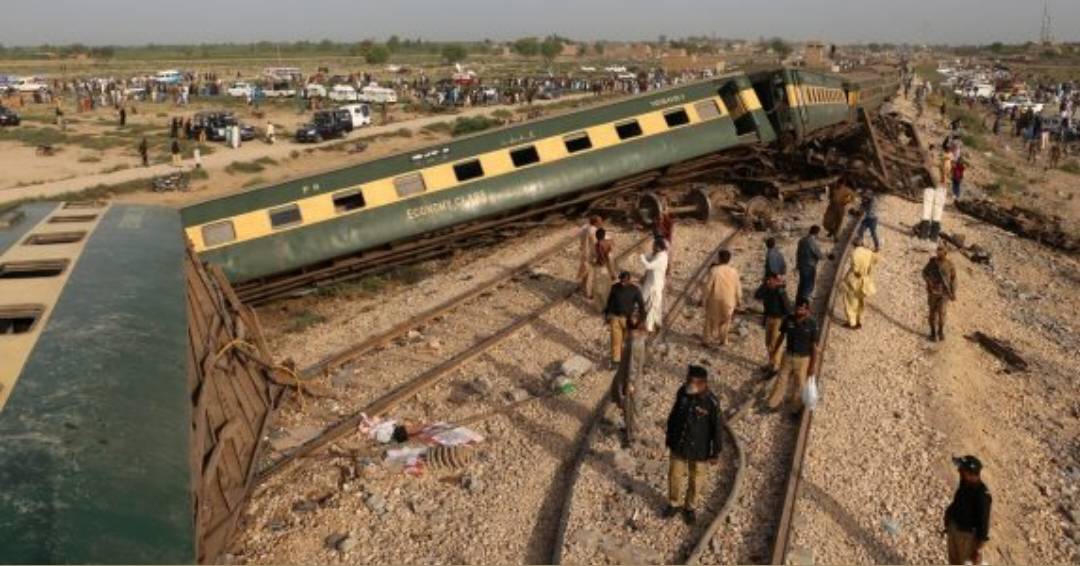
On a tragic day in Pakistan’s southern Sindh province, a devastating train accident unfolded, claiming the lives of at least 30 people and injuring 80 others. The incident occurred when several compartments of the Hazara Express, a train traveling from Karachi to Rawalpindi, derailed near Sarhari Railway Station, approximately 275 kilometers away from Karachi.
As the news of the tragedy spread, officials and rescue teams rushed to the scene to initiate the rescue and clearance operations. The Railway Minister, Saad Rafiq, expressed that their immediate focus was on rescuing survivors and removing the wreckage. Simultaneously, he announced that a thorough inquiry would be conducted to ascertain the cause of the derailment and prevent such accidents in the future.
The gravity of the situation became evident when Commissioner Benazirabad division, Abbas Baloch, confirmed the death toll of 30 people, with some passengers still trapped in the overturned carriages. Sindh Chief Minister Syed Murad Ali Shah, who visited the People’s Medical College Hospital in Benazirabad, the district housing Nawabshah, further validated the grim numbers.
Efforts to provide swift medical aid to the injured were underway, and Chief Minister Shah directed the local administration and health officials to expedite relief and rescue efforts. In a testament to the scale of the tragedy, it was revealed that around 1,000 passengers were on board the ill-fated Hazara Express at the time of the derailment.
In an attempt to understand what led to this horrific incident, the train’s driver provided valuable information. He stated that the train was running at a speed of approximately 50 kilometers per hour, well within the permissible speed limit of 105 kilometers per hour on that particular rail line. The reason for the derailment remained unclear to him, adding to the mystery surrounding the accident.
To bolster the rescue operations, the Pakistan Army and Rangers joined the relief efforts. Under the special directives of Army Chief General Asim Munir, additional troops and Army Aviation helicopters were deployed to aid in the rescue and evacuation of the injured.
As investigations continued, preliminary reports indicated that the delayed application of brakes exacerbated the intensity of the accident. This revelation raised concerns about the maintenance systems, signal issues, technical equipment, and aging engines within Pakistan’s railway infrastructure, which has a network covering around 7,500 kilometers.
Sindh, in particular, has witnessed some of the country’s worst railway accidents. One of the most catastrophic incidents occurred in 1990 near Sukkur, resulting in the tragic loss of 307 lives. Unfortunately, this recent accident added another grim chapter to the region’s history of railway disasters, emphasizing the urgent need for safety improvements.
Sunday’s tragedy came just a day after another incident, where three coaches of the Allama Iqbal Express derailed while traveling from Karachi to Sialkot, fortunately without causing any injuries. In the past, other railway accidents have also resulted in significant loss of life, raising serious concerns about the overall safety and reliability of the railway system in the country.
The scale and frequency of these accidents underscore the necessity for comprehensive measures to ensure the safety of passengers and the integrity of the rail network. Improved maintenance, modernization of signaling systems, and investment in newer equipment are among the critical steps required to prevent such heartbreaking disasters in the future. The authorities must address these issues promptly to protect the lives of thousands of commuters who rely on the railways every day.

Post Your Comments